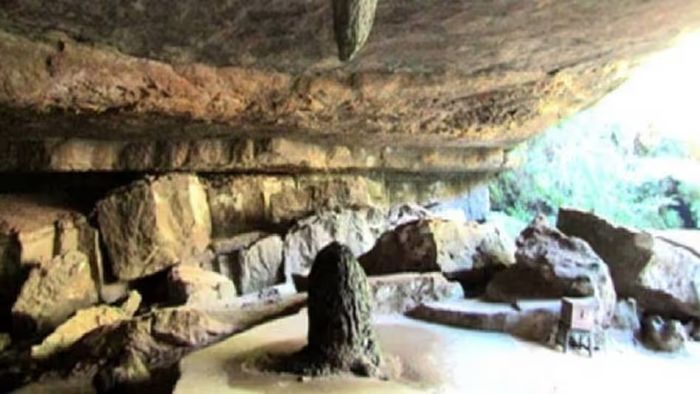Meghalaya High Court refers sacred cave dispute to single judge for mediation
Meghalaya High Court has referred the sacred cave dispute to a single judge for mediation This move seeks an amicable resolution respecting cultural sentiments and avoiding lengthy court battles

- Jun 27, 2025,
- Updated Jun 27, 2025, 8:38 AM IST
The Meghalaya High Court has directed that a contentious dispute over the Mawjymbuin cave in Mawsynram be resolved through mediation, acknowledging the significant religious sentiments involved in the case.
The cave, located in East Khasi Hills District, contains a stone configuration that has become a flashpoint between different communities. While the petitioner Seng Khasi Hima Mawsynram and supporting members of the local Khasi tribe believe the formation represents a "Shiva Linga" or the deity Shiva of the Hindu religion, other non-Hindu tribes have also laid claim to the same property.
Chief Justice IP Mukerji and Justice W. Diengdoh, hearing the public interest litigation on Thursday, noted that "hundreds of devotees visit this cave to offer puja" and that the site "has acquired substantial religious importance."
The controversy stems from a document executed on May 14, 2015, before the Joint Registrar of Societies, where the Syiem of Mawsynram allegedly conveyed the cave property to Seng Khasi Hima Mawsynram. However, the original vendors have now filed a suit in the District Council Court claiming the 2015 agreement is "non est and void" and seeking protective orders for the religious property.
The petitioner, appearing in person, argued that the District Council Court lacked jurisdiction to hear the matter, citing Supreme Court precedents. However, Deputy Solicitor General Dr. N. Mozika countered by pointing to Schedule Six of the Constitution, which vests District Council Courts with power to try "suits and cases involving scheduled tribes."
Rather than adjudicating on jurisdictional questions, the division bench chose a more pragmatic approach. The judges noted that a similar writ petition (WP(C) No.275 of 2024) is already pending before a single judge, who has formed a committee to resolve comparable issues.
"We think it fit and proper that this public interest litigation is referred to the learned single judge," the court stated, adding the current petitioner as a party to the existing case.
Recognising the sensitive nature of the dispute, the court specifically requested that the single judge "make an effort to resolve the matter amicably through mediation/settlement", given that "religious land and religious sentiments are involved."
The court has implemented safeguards during the resolution process. The District Council Court has been directed to seek permission from the single judge before passing any interim orders in the related suit filed by the property vendors.
Should mediation fail, the court suggested an alternative pathway where the single judge could refer the matter back to the District Council Court, with jurisdiction to be determined as a preliminary issue.